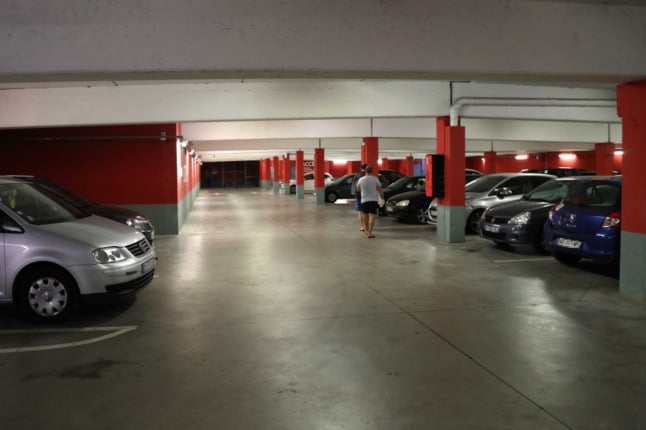Interest in parking investment is sure to increase in Paris, after municipal car parking charges jumped on Monday, August 2nd, as officials seek to reduce car use in the city centre.
The cost of parking in zone one (the first 11 arrondissements of the capital) is €6 per hour, up from €4 previously, according to the website of the Paris City Hall. In zone two (12th to the 20th arrondissements), the hourly rate has jumped from €2.40 to €4.
The cost of parking a heavy goods vehicle, meanwhile, has risen from €12 to €18 per hour in zone one and from €7.20 to €12 in zone two.
No wonder, then, that commuters and occasional visitors to Paris are looking for cheaper places to park their cars – and, despite local authorities’ efforts to reduce car use in the city, demand for parking spaces is likely to be around for the foreseeable future.
Expected returns
Car parks are on the rise among investors who expect a return of between 5 percent and 10 percent. As usual with real estate, the lower the risk, the lower the return.
In general, as investors will know, the purchase price of a car parking space is based on three things: location, location, location. A space in a popular area of Paris can set you back as much as €60,000 – but expected rental returns will be lower than if the space initially cost less.
Importantly, despite the massive increase in property prices in the capital in recent years, the parking space market has remained relatively steady.
The average price of a property is about three times more than it was in 1998 in Île-de-France (+ 193 percent), the average purchase price for parking spaces has risen 65 percent, rising to 75 percent in the Grande Couronne departments and 82 percent in the Petite Couronne.
Between 2000 to 2016, between 9,500 and 10,500 car parking spaces were sold independently of other property each year in the Ile-de-France region – rising to an average of 11,600 in 2018 and 2019 – before the pandemic slowed the market down.
Now, it seems, the market is starting to tick up again.
It’s not just Paris
A simple online search shows that there are plenty of spaces for sale or rent, just about wherever you care to look.
And the capital is not the best place for expected returns. Strasbourg – a cyclists’ paradise in France – offers the best return on investment, according to a study by online property market specialists SeLoger earlier this year.
Renting a parking space in Strasbourg offers an average yield of 8.1 percent, the study found, followed by Saint-Etienne (5.7 percent). Nîmes, Grenoble, Montreuil, Toulon, Montpellier, Marseille, Nancy, Aix, and Paris all offered returns of between 4 and 5 percent – about the same as can be expected for traditional property rentals.
It should be noted the average yields hides differences based on location within each city.
Most expensive locations
Again, it’s not Paris. The same SeLoger study found that Nice was the most expensive place to buy a car parking space, at an average price of €31,305. Paris was second at €31,152, with Boulogne-Billancourt completing the ‘podium’, with an average price of €29,395.
The top 10 was completed by Bordeaux (€26,604), Lyon (€23,745), Lille (€23,616), Aix-en-Provence (€23,594), Toulon (€19,970), Toulouse (€19,099), Reims (€18,494).
Where to look
The biggest error new investors can make is to get the location wrong.
Logically, there’s little point to investing in a spot in a sparsely populated town or village. Central and sought-after city locations are sensible options, but it may also be wise to look just outside the most popular – and, therefore, most expensive – areas.
A few hundred metres isn’t much, and it could make several thousand euros worth of investment difference – especially if there’s a handy public transport network for that ‘last mile’ commute.
As with all financial matters, careful assessment and expert advice is the safest way to avoid possible letdowns.
What to look for
A secure, lockable garage, or one in a secure location – say, for example, an underground car park – will be more sought-after by renters than a roadside parking bay, or one open to the elements. It will be more expensive to buy in the first instance, but is worth looking for, if you can afford it. After all, the extra demand from renters will mean that empty periods between rentals, when your investment will earn you nothing, are likely to be fewer and further between.
Advantages
As a starting point for any investor, car parking is not as glamorous as property development, but it’s a relatively low-cost foot on a low rung. Post-purchase costs, such as cleaning, repair and other maintenance costs are practically non-existent with parking spaces.
And you are less likely to run into problems in terms of damage and non-payment, given the relatively low sums of money involved.
Disadvantages
This won’t last forever. Changing attitudes towards cars mean, eventually, commuters and travellers will increasingly use other means of transport.
Cities are gearing up to take cars ultimately out of the city centre equation as much as possible; autonomous vehicles will happen and – until then – there’s always Uber. Or scooters. Or electric bikes.
Even so, this shift in transport requires a shift in attitudes that will not happen overnight, so there’s plenty of time to make some financial hay while the car parking rental sun shines.



 Please whitelist us to continue reading.
Please whitelist us to continue reading.
Member comments